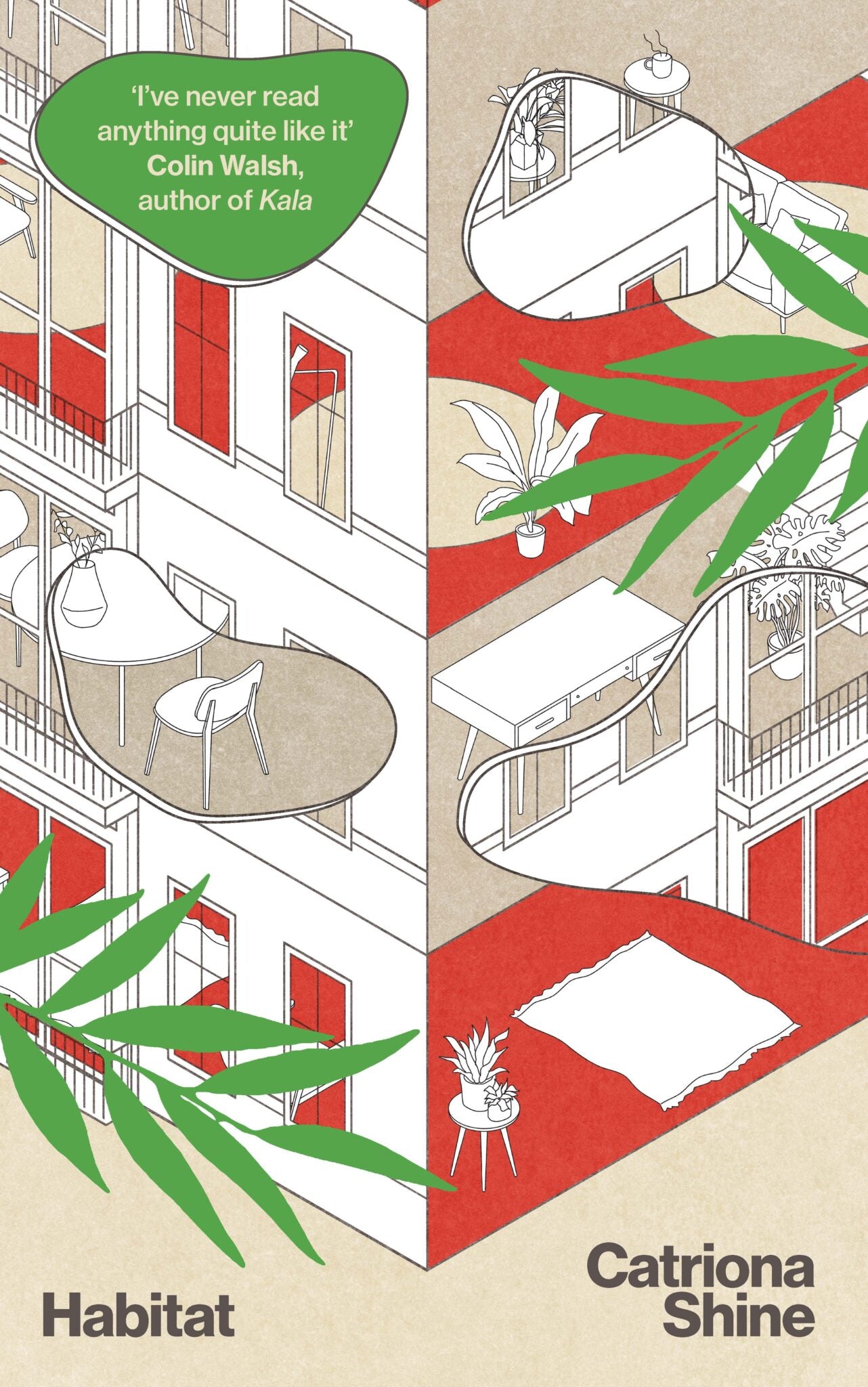Habitat is the debut novel of Catriona Shine, an architect who grew up in Ireland and now works in Oslo, and the latest installment in Madeline Beach Carey's “Building Novels” series that looks at works of fiction with architectural themes. The novel follows seven neighbors living in an Oslo apartment building that unites them in unexpected ways.
The Irish architect-turned-novelist Catriona Shine has written a remarkable book, an unsettling debut that murmurs, whispers, and then screams many warnings about our contemporary moment. The novel Habitat tells the story of seven neighbors in a mid-century apartment building in Oslo. These residents are interconnected by familial ties and some simmering feuds. They are bound together in many ways, some which feel almost ghostly or other worldly. The opening chapters are cloudy, at times confusing. The reader is not sure what is happening or what the rules of the narrative are.
During the week leading up to Constitution Day, strange things begin to happen to the residents. We get glimpses of all sorts of lives: families crammed together, older people feeling lonely, isolated. Each person is so absorbed in their own daily life and struggles they don’t realize that the building is crumbling—a collective event, a shared catastrophe. As the novel unfolds people’s privacy becomes unbound and they must begin to interact with their neighbors, to sometimes see things from another person’s point of view:
The dangers and calamities are mostly just odd at first: a ceiling that isn’t quite a ceiling, furniture moving from one apartment to another, strange animal droppings, branches opening doors. Things however begin to feel much more sinister, quite frightening as the novel speeds up.
Shine’s prose is exact and sharp. She details tiny, personal dystopias, and then leads us into a crescendo of decline:
Collapse is the word that echoes over and over and over. A shattering in miniature, as if the author had been able to place our collective anxiety about climate and fascism into the form of a dollhouse.
Habitat is not realist, even though our exact cultural moment seems to flash in each and every line. On the contrary, the text is very removed from traditional narrative form or reality. Some critics might say the novel is an ecological thriller, and yet the book is very much about the dramas of familial life and shared spaces.
Shine addresses real problems so familiar to many in Ireland and across Europe. For many people, especially younger people, housing is totally precarious, a source of constant angst—the thing that makes living unlivable in any conventional sense. For me, the genius of Shine’s story lies in combining two terrors: the housing crisis with climate change. She plays with scale in a beautiful, foreboding mode:
Her description of the landlord rings all too true:
Here there are many disasters: both small and large, personal and planetary. The result is unsettling and yet still surprisingly lovely: a little bit like city life itself. Catriona Shine proves to be a master of intimacies, layered atop one another and then splayed out for our study. Habitat appears to be written by an architect with the soul of a very imaginative biologist.

Habitat
Catriona Shine
368 Pages
Paperback
ISBN 9781843518877
The Lilliput Press
Purchase this book

